|
|
||||||||||||||
|
||||||||||||||
|
Remembering Rev. Richard Deats, a life-long peace movement leader and influential teacher of nonviolence
Friends,
I will venture a guess that many of you did not know of the remarkable life of Richard Deats. I became acquainted with the Fellowship of Reconciliation when representatives spoke in Indiana, PA, the home of Jimmy Stewart. As an avid reader of the Fellowship I became acquainted with his writings. And I met him in Nyack, NY when I applied for a job with FOR. While I did not get the job, we did have a wonderful conversation.
Imagine if he decided to become a politician or a member of the military, you would have seen him interviewed on television. Alas peace activists, pacifists and believers of nonviolence are taboo for the mainstream media. I frequently cringe when the likes of Ted Cruz or a bevy of generals are asked to comment on a crisis. They bloviate, and avoid talking about the ills of the US Empire. Will there be a day when a Richard Deats will be on cable television? Kagiso, Max
-
OBITUARY

Remembering Rev. Richard Deats, a life-long peace movement leader and influential teacher of nonviolence
A prolific writer and speaker, Rev. Deats strengthened grassroots movements by leading nonviolent action trainings in conflict zones around the world.
Ethan Vesely-Flad and Rev. John Dear April 7, 2021
Rev. Richard Deats, a long-time global peace movement leader and one of the most influential teachers of the philosophy and practice of nonviolent action in 20th century movements, died in Nyack, New York on April 7 from complications related to pneumonia, according to his son, Mark Deats. He was 89.
Rev. Richard Deats (FOR)
“As a long-time leader of the global peace movement organization, the Fellowship of Reconciliation, and editor of Fellowship magazine, Richard Deats was one of the most well respected, well connected, and most influential peace movement leaders in the United States and the world during the last half of the 20th century,” said Rev. John Dear, a close friend and former executive director of the Fellowship of Reconciliation, or FOR.
“Deats worked closely with peace leaders around the world, including Martin Luther King, Jr., Coretta Scott King, Rev. Jim Lawson and other civil rights leaders, several of Mahatma Gandhi’s heirs, Thich Nhat Hanh and various Buddhist leaders, Rev. Daniel Berrigan, and Archbishop Desmond Tutu,” Dear said. Deats joined Mrs. King at the White House when Ronald Reagan signed into law the national holiday honoring Martin Luther King, Jr.
In the early 1980s, Deats helped organize and present hundreds of workshops on nonviolence attended by tens of thousands of people throughout the Philippines which laid the groundwork for the People Power nonviolence movement that brought down the Ferdinand Marcos dictatorship in 1986. He also led 13 peace delegations to the Soviet Union in the 1980s that helped ease tensions and build relations at the height of the Cold War.
Born on February 8, 1932 in Big Spring, Texas, Deats attended McMurry College in Abilene, Texas in the early 1950s, where he became active in the Methodist Student Movement. Deats’ life changed one day in 1951 when as an undergraduate he heard the British pacifist leader Muriel Lester speak about Gandhi and nonviolence.
Lester was on a global speaking tour on behalf of the International Fellowship of Reconciliation, and had been a close friend of Mahatma Gandhi, who stayed with her for three months in London during the 1931 Round Table Conference. Lester convinced Deats that Gandhi’s methodology of nonviolent change worked better than violence, and that Christianity was also rooted in nonviolence.
Deats soon became involved with the U.S. branch of the Fellowship of Reconciliation and volunteered the following summer to work in a refugee camp in Germany. Deats later published an anthology of Lester’s writings, “Ambassador of Reconciliation: A Muriel Lester Reader.”
Deats enrolled at the Perkins School of Theology at Southern Methodist University and was elected student body president as well as president of the Texas Methodist Student Movement. There he formed a close friendship with Walter Wink, who would later write a series of groundbreaking books on Christian nonviolence.
Coretta Scott King called Deats “one of America’s most knowledgeable and dedicated advocates of nonviolence … an activist who has not only written about nonviolence, but has also ‘walked the walk.’”
In 1956, Richard married Janice Baggett, and they moved to Boston to study for his Ph.D. in social ethics at the Boston University School of Theology, where Rev. Howard Thurman, an acclaimed African-American theologian and preacher (and dedicated FOR member), was a faculty member and dean of Marsh Chapel, and where a young Martin Luther King, Jr. had just graduated with a doctorate.
In 1958, Deats and a few other students drove South for Christmas vacation. Deats had written earlier to King saying that he and other seminarians from Boston University planned to attend his Sunday morning worship service when they passed through Montgomery. That morning during the service, King asked the young seminarians from Boston to stand, and the congregation welcomed them with applause. After the service, they shook King’s hand, thanked him for his work with the bus boycott and his sermon that morning, and started to leave.
“Where are you going?” King asked. “Mrs. King is cooking a meal in your honor.” And so Richard and his friends spent the afternoon with the Kings, talking about theology, the scriptures and nonviolence. They remained friends for the rest of their lives.
Deats later served on the Martin Luther King Federal Holiday Commission, which led Mrs. King to invite him to be her guest to President Reagan’s signing ceremony in the Rose Garden in November 1983.
In her foreword to his book, “Martin Luther King, Jr.: Spirit-Led Prophet,” Coretta Scott King called Deats “one of America’s most knowledgeable and dedicated advocates of nonviolence … an activist who has not only written about nonviolence, but has also ‘walked the walk’ in numerous nonviolent action campaigns.”
In 1959, Deats accepted an assignment with the Methodist Board of Mission to serve in Manila, capital of the Philippines, as minister to Knox Methodist Church, one of the largest English-speaking churches in Asia, where he lived and worked for the rest of the decade. He also taught at the Union Theological Seminary in Palapala, Cavite, the Philippines.

Rev. Richard Deats participating in a protest against the U.S. war in Vietnam. (WNV/Brooks Anderson)
During those years, in protest of the growing U.S. war in Vietnam, Deats organized the Committee of Americans for Peace in Indochina, and led regular peace vigils outside the U.S. Embassy in Manila. In 1967, Southern Methodist University Press published Deats’ book “Nationalism and Christianity in the Philippines.”
Working with the International Fellowship of Reconciliation, he helped organize the first speaking tour of a young Vietnamese Buddhist monk, Thich Nhat Hanh, who would later become a world-renowned author and teacher of Buddhist mindfulness and would be nominated for the Nobel Peace Prize by King. Thich Nhat Hanh stayed with Deats and his family in Manila in 1965 and they remained colleagues for decades.
In 1972, Deats accepted a position at the Fellowship of Reconciliation’s national office in Nyack, New York, where he would live and work for the rest of his life.
For the next three decades, he traveled the world and promoted peace, nonviolence and reconciliation through FOR, much as Muriel Lester did in the 1950s. He wrote countless articles, gave many speeches, and led innumerable trainings on active nonviolence as a methodology for grassroots movements and social change.
He gave workshops and lectures on virtually every continent, primarily in conflict zones, from apartheid South Africa to Cold War Europe; in dictator-led countries in Asia, the Pacific and South America; in the conflict-ravaged Middle East and impoverished Haiti.
In the 1970s, Deats traveled to South Korea during the military dictatorship of Park Chung-Hee. “Though I was followed by the Korean CIA throughout most of my visit, my hosts arranged for me to do unannounced nonviolence trainings and speak to various audiences. It was on that trip that I met with the Korean Gandhi, Quaker Ham Sok-Hon.”
He used his experience of holding “unannounced” workshops in Korea in other oppressed countries for the next 25 years. Most significantly, he began offering workshops on nonviolence at the University of the Philippines in the early 1980s.
“If a global democratic civilization is to come into being and endure, our challenge is to continue developing nonviolent alternatives to war and all forms of oppression”
– Rev. Richard Deats
Stefan Merken, a close friend and leader with the Jewish Peace Fellowship, accompanied Deats on one three-week teaching tour. “Jesuit priest and peace movement leader Rev. Jose Blanco (who had earlier been arrested and charged with plotting to oust the Marcos regime) had invited Deats to teach at the University of the Philippines,” Merken said. “Everywhere we went, people looked at Richard as if he was Gandhi. Crowds of people waited to see him. He was so respected.”
Deats became part of the International Fellowship of Reconciliation training program that offered workshops on the methodology of nonviolence throughout the Philippines in 1985 and 1986, which paved the way to the peaceful People Power revolution. In February 1986, over a million people nonviolently took to the streets of Manila, forcing Marcos to flee and leading to the installation of Corazon “Cory” Aquino as the 11th president of the Philippines.
In the 1980s, Deats also coordinated FOR’s efforts to promote reconciliation between the United States and USSR, and led 13 peace delegations to the Soviet Union. “The fear in those early trips,” Deats later recalled, “changed increasingly to anticipation as grassroots diplomacy began to build an almost irresistible tide of friendship between East and West.”
During those trips, Deats coordinated nonviolence workshops in Moscow, Tashkent, and Leningrad, using King’s Six Principles of Nonviolence, which had been translated into Russian, according to Liliane Kshensky Baxter, one of the participants and then-director of nonviolence training at The King Center. Copies of those handouts were tacked up on the walls of the streets of Moscow by the Russian peace organization Golubka in the days leading to the end of the Soviet Union.
In 1987, Deats and his friend Walter Wink led workshops on active nonviolence in Lesotho for anti-apartheid liberation activists. The South African Council of Churches had invited them to teach nonviolence throughout South Africa, but the apartheid regime refused them entry.

Richard Deats and Yasser Arafat. (FOR)
In the early 1990s, he helped coordinate an interfaith peace effort in Iraq and met with Yasser Arafat and the PLO in Tunis to promote peace and reconciliation. He also traveled to Burma where he met with pro-democracy groups and promoted nonviolence, as well as with indigenous leaders in Ecuador. Over the years, he spoke on nonviolence and led other peace delegations in India, Bangladesh, Iran, Japan, Thailand, Haiti, Kenya, Lithuania, Colombia, Palestine and Israel.
Deats had been appointed FOR’s interfaith point person in the 1980s, so he began to reach out and promote Kingian nonviolence with religious leaders across the spectrum. “In my work with Jews, Buddhists, Hindus, Muslims, Bahai, Jains, indigenous peoples, and many Christian denominations,” Deats later recalled, “I have been greatly enriched by their various traditions of compassion, love and devotion.” FOR’s movement had been founded by Protestant Christians at the start of World War I, and though it had included Roman Catholics and Jews since the mid-20th century, Deats’ dedicated efforts encouraged its multi-faith intentions to flower.
In the 1990s, he became editor of FOR’s magazine, Fellowship, and published a series of books. Besides those on Muriel Lester and King, he wrote biographies of Mahatma Gandhi and Hildegard Goss-Mayr, the Austrian peace movement leader, as well as his collection, “Stories of Courage, Hope, and Compassion” and his book of jokes, “How to Keep Laughing – Even Though You’ve Considered All the Facts.”“ There are many times when if we didn’t laugh, we would be crying,” Archbishop Tutu wrote of that book. “Thank goodness for Richard Deats.”
Deats’ 1996 essay “The Global Spread of Active Nonviolence” was published in journals around the world, and was one of the first to demonstrate the global power of engaged nonviolence as a methodology of social transformation that works more effectively than violent protest or violent rebellion.

Rev. Richard Deats with Thich Nhat Hanh and Rev. John Dear. (WNV/John Dear)
“What if in 1980 someone had predicted that unarmed Filipinos would overthrow the Marcos dictatorship in a four-day uprising?” he wrote. “That military regimes across Latin America would be toppled by the relentless persistence of their unarmed opponents? That apartheid would end peacefully and that in a massive and peaceful plebiscite all races of South Africa would elect Nelson Mandela to the presidency? That the Berlin Wall would be nonviolently brought down? Such a person would probably have been thought ridiculously naïve and dismissed out of hand. And yet those things happened!”
Deats concluded that active nonviolence has become a powerful, central force in the role of global liberation movements. While some have described the 20th century as the most violent in human history, Deats spoke hopefully of the growing awareness of the teachings of Gandhi and King, and argued persuasively that their influence will have lasting impact on our shared future.
“If a global democratic civilization is to come into being and endure, our challenge is to continue developing nonviolent alternatives to war and all forms of oppression,” he added. “We must continue to challenge the age-old assumption about the necessity of violence in overcoming injustice, resisting oppression and establishing social well-being.”
Deats is survived by his wife, Jan of Nyack, New York; their four children, Mark of River Vale, New Jersey; Stephen of Brooklyn, New York, Katherine of New York City; and Lisa of Jerusalem; 15 grandchildren; and eight great-grandchildren.
Ethan Vesely-Flad is director of national organizing at the Fellowship of Reconciliation (FOR-USA). He connects and supports FOR members and chapters, builds and strengthens campaigns, and leads the Fellowship’s communication strategy. He previously served as editor of The Witness, GraceOnline, and Fellowship magazine, and his writings have also been published in Colorlines, The Source, the Huffington Post, Episcopal Life, and other media outlets. Born in Harlem, raised in Poughkeepsie, and formed in Oakland, Ethan now lives with his family in the beautiful Blue Ridge Mountains of Asheville, North Carolina.
Rev. John Dear is a longtime peace activist, organizer, and former executive director of the Fellowship of Reconciliation. He is currently the executive director of the Beatitudes Center for the Nonviolent Jesus where he offers regular zoom workshops. He was nominated by Archbishop Desmond Tutu for the Nobel Peace Prize. For more, visit: www.johndear.org
TAGS: MARTIN LUTHER KING, JR., PHILIPPINES, SOUTH KOREA, TRAINING, UNITED STATES
MORE BY ETHAN VESELY-FLAD AND REV. JOHN DEAR
Donations can be sent to Max Obuszewski, Baltimore Nonviolence Center, 431 Notre Dame Lane, Apt. 206, Baltimore, MD 21212. Ph: 410-323-1607; Email: mobuszewski2001 [at] comcast.net. Go to http://baltimorenonviolencecenter.blogspot.com/
“The master class has always declared the wars; the subject class has always fought the battles. The master class has had all to gain and nothing to lose, while the subject class has had nothing to gain and everything to lose–especially their lives.” Eugene Victor Debs
Pat Bernie & Betty RIP

“Pat and Betty were among the kindest persons I knew. Their home in Columbia was a place of peace for all peace activists”. – Tony Langbehn
“Carol and I have very fond memories of Pat and Betty, who were not only exceptional human beings but also among the most dedicated peace and justice activists we have had the privilege to know and work with”. – Ron Solomon
They were long-term supporters of MUPJ. Paulette Hammond
“Pat is definitely resting in peace, as she was a force here and in Arizona. I first met her when we were taking on JHU’s APL. Her home in Howard County was always available as a site to plan actions. Her partner Betty climbed up on the roof of an APL building and was arrested on MLK Day. It was a frigid day but not cold enough to stop that protest. Another issue which Pat took on was General Electric and its weapons contracts. She owned stock in GE and would attend shareholder meetings to rail against the weapons contracts.
Because of Betty’s health, they moved to Tucson, Arizona, and I believe that is where Betty died. They made friends out there with Jack and Felice Cohen-Joppa, publishers of the Nuclear Resister. After Betty’s death, Pat moved back to Maryland.
She has been on my Elist forever. The last time I saw her was in D.C. at a July 2013 climate rally in D.C. Tim DeChristopher, who bid on land in Utah to prevent Big Oil from getting access to this federal property, spoke at the rally, He had received a two-year sentence in 2011.
I have many fond memories of Pat and Betty, a duo who refuse to acquiesce to injustice. Pat, I am going to miss you, just as much as I am missing Betty.” – Kagiso, Max
Dr. Victor W. Sidel
|
||||
|
||||
|
Dean Pappas
Antiwar and civil rights activist who helped plan the 1968 Catonsville Nine draft board raid

Dean Pappas, an antiwar and civil rights activist and teacher who assisted in the planning for the 1968 Catonsville Nine draft board raid, died Saturday of pancreatic cancer at his Mount Washington home. He was 78.
“When I came to Baltimore in 1967 to join the antiwar movement, Dean was one of the first people I met,” said Brendan Walsh, a former seminarian and co-founder of Viva House with his wife, former nun Willa Bickham.
“He believed the Vietnam War had to be resisted and he was a great teacher, and for me, was a key person in the antiwar movement,” Mr. Walsh said. “He had a great mind and a great way of relating to you.”
“Dean was absolutely one of a kind, who taught physics but also taught life,” said Tom Buck, an English teacher and Friends School colleague. “He was very political, and politics were very important to him. He was a movement kind of guy.”
The son of Mitchell Pappas, an office worker, and Christine Pappas, a bookkeeper, Constantine Pappas was born in New York City and raised in Queens, N.Y.
Mr. Pappas, who was known as Dean or Dino, and never used his birth name, was a 1957 graduate of Jamaica High School.
After earning a bachelor’s degree in physics in 1961 from Yale University, he moved to Baltimore, where he enrolled at the Johns Hopkins University and obtained a master’s degree in physics.
Mr. Pappas abandoned the pursuit of a doctorate in physics at Hopkins to focus full-time on the civil rights movement, fair-housing issues, and working against the military junta that ruled Greece from 1967 to 1974.
He taught physics at the University of Maryland, Baltimore County, the Park School, and part-time at Coppin State University and the University of Maryland Eastern Shore before joining the Friends School faculty in 1988.
An adjunct at the Maryland Institute College of Art, he also exhibited his sculptures in faculty exhibits.
Mr. Pappas became a leader in the Baltimore antiwar movement during the Vietnam era and founded the Baltimore Defense Committee and Teachers Against the War in Vietnam.
“The 1967 march on the Pentagon was the first mass civil disobedience the antiwar movement engaged in,” Mr. Pappas told The Baltimore Sun in a 1987 interview. “For a lot of us, it was our first taste of tear gas.
“In Baltimore, there wasn’t much of a student movement against the war. The main antiwar activity came out of the religious community led by such as Philip Berrigan,” he said.
A highlight of Mr.Pappas’ antiwar activities was helping to plan the raid May 17, 1968, to destroy the files of Selective Service Local Board No. 33 in Catonsville. The raid was carried out by nine men and women, including the Rev. Daniel Berrigan and his brother, Phillip, a Josephite priest.
“Dean made the napalm that was poured on the draft files,” Mr. Walsh said.
“I got the press there, the Berrigans asked me to do that,” recalled Grenville B. Whitman, an activist who at the time represented the Peace & Freedom News.
“He was also highly involved in the leading the demonstrations as a result of the Catonsville Nine activities. We worked closely on that,” said Mr. Whitman, a former Charles Village resident who now lives in Rock Hall on the Eastern Shore.
“He organized consciousness-raising activities in Baltimore once the Catonsville Nine trials started,” said Donna Poggi Keck, an antiwar and women’s movement activist, who lives in Charles Village. “He had people come and speak that were national figures, like the Rev. William Sloane Coffin.”
“There was no special significance to Catonsville,” Mr. Pappas told The Sun in a 2010 interview. “It was just a target of opportunity.”
Two years earlier, he told the newspaper that he had abandoned the tactics of 1968.
“I think that Phil and company [spending] the last 20 years smashing nose cones on missiles and getting thrown in jail was a waste of time,” he said. “I hate to put it that way, but I don’t think it did much to advance the cause.”
“I first met Dean in 1964 when he was teaching, and we got involved in the Poll Tax Project,” said Mr. Whitman. “We got volunteers to go to polling places, and we collected money for SNCC [the Student Nonviolent Coordinating Committee] and we collected $1,000, which was a lot of money. Dean helped me the most in organizing the project.”
“He was very much a leadership person who made a rather striking presence. He was large and blond and had no trouble speaking in front of a crowd. He was very courageous,” Mr. Whitman said.
“His leadership qualities were outstanding and he was such a really nice man,” Ms. Keck said. “He was a person able to argue without belittling his opponent or demonizing them. He reached out and tried to make connections.”
In the late 1970s and continuing into the early 1980s, Mr. Pappas wrote a column, “From the Left,” for the Baltimore City Paper. Subject matter included local, national and international issues, as well as Orioles baseball.
Mr. Pappas later founded the People’s Free Medical Clinic and a coffeehouse and food cooperative in the Waverly area. He was active in the New American Movement and Democratic Socialists of America and worked tirelessly for peace in the Middle East.
“His activism continued on for decades,” Ms. Keck said.
“He was a great keeper of left-wing actions,” Mr. Whitman said,. “After the war was over, we drifted apart, but we remained friends, and he continued to speak out.”
“If you wanted to kill a physics class, just ask Dean about the Catonsville Nine, the Vietnam War or the trade movement; he’d go on for a full 45 minutes,” Mr. Buck said with a laugh. “He was very outspoken, and you just couldn’t help but love him.”
At Friends, Mr. Pappas founded the Chess Club and the Senior Work Project in 1994.
“The Senior Work Project helped seniors counter senior slump,” said Heidi Blalock, Friends School’s communications director and a Hampden resident. “He’d find places for them to go. They would shadow a surgeon or an FBI agent or go to a car repair shop.
“He had a big, bold personality and had so much love and was passionate about his students and his work,” she said. “He lived his values, and because this is a Quaker school, he represented the founder of Quakerism George Fox’s quote, ‘Let your life speak.’?”
Mr. Pappas, a former Charles Village resident who later moved to Mount Washington, retired in 2008. In retirement, he became a student in Towson University’s OSHER adult education program and had to cancel teaching his Great Ideas in Science course after being diagnosed with Stage 4 pancreatic cancer in August 2016.
Plans for a memorial service are incomplete.
He is survived by his wife of 34 years, Claudia Leight, a retired Morgan State University counselor; a son, Dr. Alexi Pappas of Harlem; and a brother, James Pappas of Port Lucie, Fla. An earlier marriage ended in divorce.
fred.rasmussen@baltsun.com

Lawrence Deems Egbert, Jr., M.D., M.P.H., a resident of the Hampden neighborhood of Baltimore, died of a heart attack Thursday evening, June 9th. He was the oldest and the longest-surviving of the three sons of Lawrence D. Egbert, Sr. and Lyn Forsyth Egbert. He is survived by his wife, Ellen Barfield, his five children: Louise Egbert Treitman (Rick Treitman), Lexington MA; Ruth Egbert Walker (Ron Walker), Stillwater, OK; Dave Egbert (Imane Daher), Parkville, MD; James Egbert (Peg Murphy), Eureka, CA; and Ben Egbert (Thomas Lymenstull) of Dallas TX, nine grandchildren, and three great-grandchildren. He is also survived by his former wife, Dorothy Staples Egbert, of Stillwater, OK and was predeceased by his former wife, Marcelle Hechemy Egbert. He was 88 years old.
Dr. Egbert was a retired professor of anesthesiology and public health. He earned several degrees from Johns Hopkins University and his M.D. from the University of Maryland. He was a veteran, having served both in the Army and Navy, and was stationed in Japan after the Second World War.
Lawrence was born in Champaign, IL and grew up in Washington, DC. He was a nationally-recognized anesthesiologist, publishing several important articles about patient care and racism in the New England Journal of Medicine and the Journal of the American Medical Association. He worked at Harvard University and Massachusetts General Hospital, Johns Hopkins University and the University of Texas Southwestern Medical Center in Dallas. He also served for several years as visiting faculty at Pahlavi University Medical School in Shiraz, Iran and the American University of Beirut in Lebanon.
In later years, he became an anti-war and anti-nuclear activist, a member of the board of Physicians for Social Responsibility, and a volunteer with Doctors Without Borders. He was also strongly opposed to the death penalty and was a nationally-known expert on lethal injection. In recent years he was the medical director of Final Exit Network—an organization that provides education and compassionate presence to those facing end of life choices. He was arrested and faced multiple trials for his work with FEN. He was active for much of his life in Unitarian Universalists district governance and social change committees, especially UUs for Alternatives to the Death Penalty. He was attending a Quaker Meeting in recent years.
Lawrence has lived with his wife Ellen in Baltimore for nearly twenty years. He did not own a car or a cell phone. He bicycled nearly everywhere he needed to go, rain or shine. A memorial service is tentatively planned for August 27th in Baltimore. Donations in his memory can be made to Physicians for Social Responsibility, Final Exit Network or Veterans For Peace.
Remember to Live in LOVE; and let love live in you, through you, around you, and AS you!
We Remember Dallas Police Victims, Philando Castile and Alton Sterling
We cannot live w/ on average an excess of 1,000 lives taken each year, mostly because of fearful law enforcement. Congress has bills awaiting our ACTION.
Please sign my petition that addresses the President and Attorney General!!!
September 22, 1927 – June 9, 2016
MUPJ Stands with Victims of Pulse – Orlando.
MUPJ pauses to offer condolences to the many involved in the tragedies of what transpired at Pulse Night Club in Orlando, Fl. We must enforce commonsense laws to protect our citizens: background checks, automatic assault rifle ban to curb these instances. Elect congresspersons who’ll have your best interest. We must stand up in love against hate.
Orlando Nightclub Shooting: What We Know. Here is what we know about the victims:



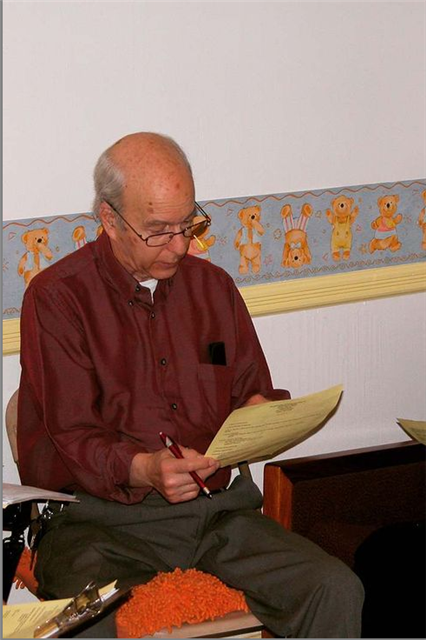
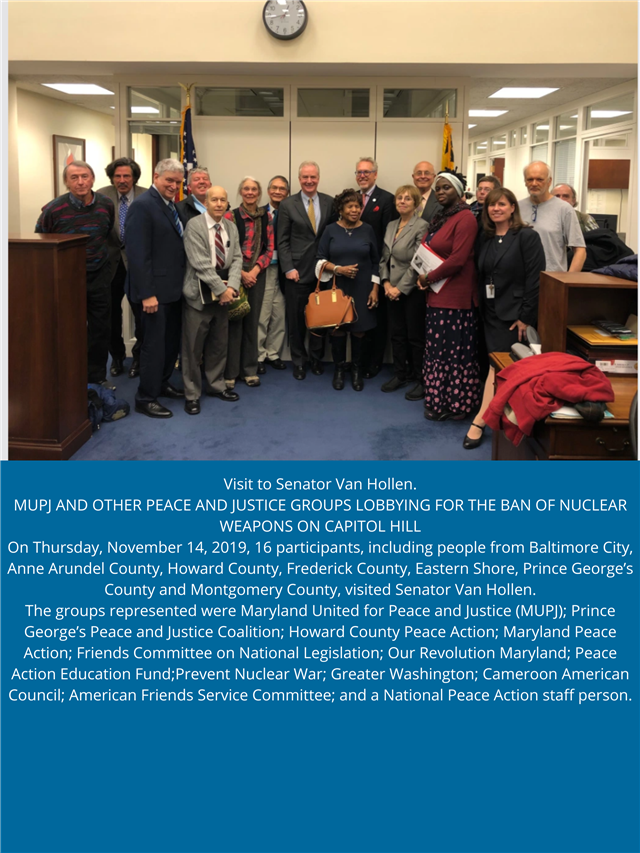



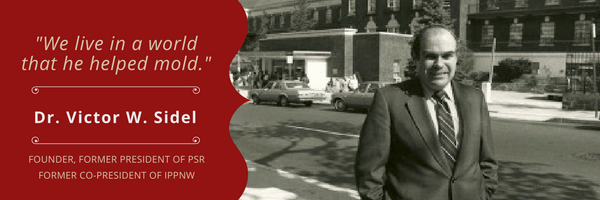
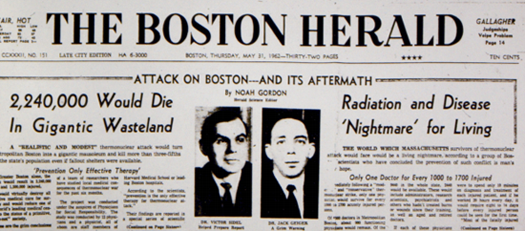
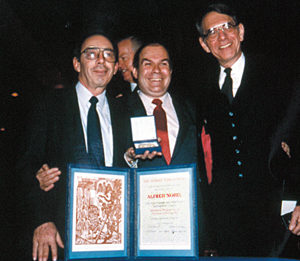
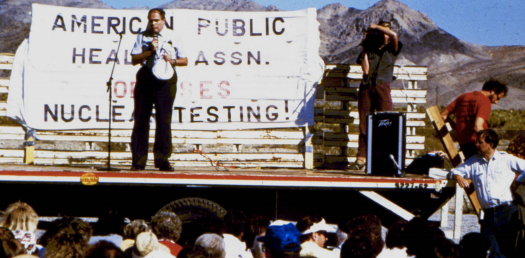
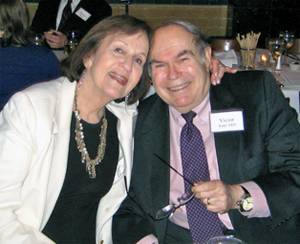
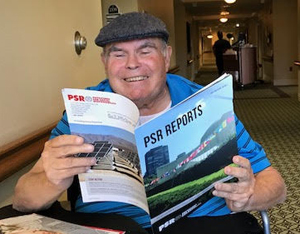
 Jeff Carter, JD
Jeff Carter, JD